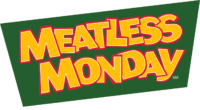

Nationwide Survey Data
Using a nationally representative panel of over 1,000 US adults, we found valuable information about how people perceive meatless diets and the impact of Meatless Monday
Going Meatless Monday is an easy first step that can lead to more plant-based eating throughout the entire week and also helps people become more familiar with preparing meatless meals.
Every other year, Meatless Monday commissions a nationwide survey conducted by the Data Decisions Group to track awareness and behavior related to our initiatives. The online survey of 1,010 American adults assesses overall trends in meat consumption and the role that Meatless Monday (MM) plays in influencing dietary patterns. The Johns Hopkins Center for a Livable Future served as our scientific advisor in conducting the survey.
Our latest survey conducted in November 2021 found:
A lot of people are going to participate in Meatless Monday in 2022:
- Looking toward 2022, about 65% of respondents said they plan on trying more meatless meals, with nearly 50% planning to participate in Meatless Monday and another 15% adding more plant-based meals throughout the week.
About a quarter of Americans could be persuaded to reduce meat consumption:
- 24% of all people surveyed say they would be persuaded to try plant-based options at places they eat if a discount or promotion was offered.
- Additionally, 1-in-4 would be persuaded to reduce their meat consumption if their friends and family also participated in reducing their meat consumption.
Americans are cutting back the amount of meat they eat, primarily because of health concerns.
- 35 percent of respondents say they are actively cutting back, 32 percent say they have cut back in the past or are considering cutting back, and 26 percent report that they’re not considering cutting back.
- 63 percent of respondents who are cutting back on meat report that health is the primary reason in their decisions to reduce meat; followed by saving money (12 percent), animal welfare (9 percent), enjoying meatless dishes (8 percent), and environmental concerns (7 percent).
Meatless Monday is one of the most well-known meat reduction campaigns, primarily driven by social media and word-of-mouth.
- 38 percent of respondents were aware of MM in 2021.
- 20 percent of all respondents say they participated in Meatless Monday.
- Of those aware of Meatless Monday, 41 percent say the campaign has influenced their decision to not eat, cut back on, or consider cutting back on the amount of meat they eat.
- Awareness is highest among active meat reducers (49 percent) and those who have cut back in the past (42 percent).
- The primary sources that people heard about Meatless Monday were through social media (40 percent) and friends and family (28 percent). However, respondents indicated that incorporating more meatless meals remains a challenge due to concerns about health, lack of familiarity and attitudes of friends and family.
Meatless Monday is influencing people to reduce meat and try more meatless options.
- Of those influenced by Meatless Monday, 40 percent eat more fruits and vegetables. Additionally:
- 29 percent eat less meat
- 26 percent have tried to incorporate more meatless meals throughout the week
- 25 percent have experimented with new meatless recipes when cooking at home
- 20 percent have tried more meatless dishes when eating out
Many African Americans are making the change to a plant-focused diet (vegetarian, vegan, pescatarian).
- Compared to White Americans (31%), 46% of African Americans are actively eating less meat, according to the survey.
- Additionally, over 25% of African Americans said that they planned to do Meatless Monday every week in 2022, which is significantly higher than the 17% of White Americans planning to participate every week.
For more tips and resources to join the Meatless Monday movement, visit the Meatless Monday Resources page.
For more information about using a Monday cue to support healthy behavior, visit The Monday Campaigns Research page .
